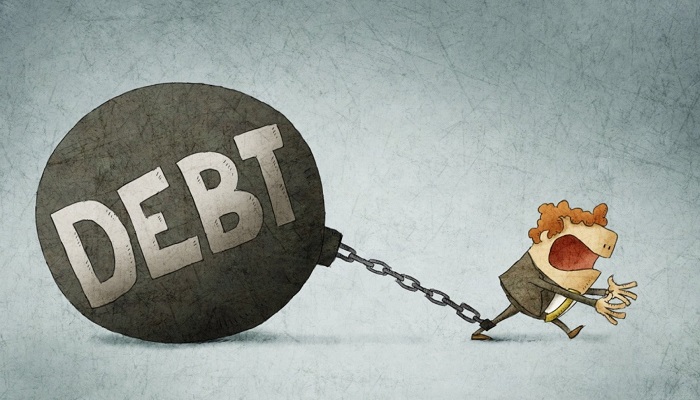Learn the Ways to Avoid Bad Debts.
Late payments are some of the major financial threats confronting small businesses as many customers take joy in not paying their invoices on time. That makes it not easy for small business owners to succeed.
While you are the head of all departments, you are also the clerk, sales rep, and driver who would deliver the goods.
Even when you have access to a loan and you are able to organize your business, having customers who don’t want to pay you on time is a big issue.
Late payments can put your business in a terrible financial situation. It makes growth almost impossible if you don’t have a very strong financial backup.
Even if you have regular capital coming from other means, the source will end up having the same problem if you can’t refund your loan in its due course.
Bernard Swanepoel, executive director of the Small Business Institute (SBI) describes late payments as an “assassin” which kills small and medium-sized businesses.
According to Fin24, most affected businesses close shops in less than three years, while only about 15% survive.
There are good business practices, which you can adopt to reduce the impact of late payments on your business. And that is what this guide is all about.
In this post, you will learn how to fill the hole that late payments can put in your cash flow without losing your customers.
It holds that you can still manage your customers when they are not paying you according to schedule without putting your business on the line.
What are the Causes of Late Payments?
There are different reasons for a small business owner like you to supply a customer and payments don’t follow. Here are some of the causes you need to watch out for and design a measure to minimize their impact on your business.
Enticing Customers with Credit
Small business owners battle with late payments when they are just starting up. At that stage, if you encourage your customers to buy now and pay later, you are showing yourself the way home.
In fact, some customers will take advantage of your newness in the market and buy from you without having the intention of paying.
No wonder some big businesses use SMEs as a line of credit to meet their goals. Most of their supplies come in credit and the suppliers suffer before getting paid.
Forget to Pay in Due Time
Forgetting to pay in due time happens when customers can’t afford to pay and ask for more time to raise enough funds to clear the bill.
While waiting so long, the payments can take longer than expected if the customer doesn’t monitor the schedule by sending reminders.
Misunderstanding Due to Disagreement on Bills
When there is no concrete agreement between you and your customers before delivering your products or services, there can be a misunderstanding between you.
As a result of this, the payment will have to be delayed until you are able to reconcile the differences.
Bankruptcy or Lack of Funds
Bankruptcy can also lead to late payments. If a customer runs at a loss, it will take another couple of days, weeks, months, or even years to raise funds for the debts.
Withheld Payments Due to Poor product or Service
No customers will be happy to pay for incomplete service or faulty products. Sometimes companies ask for a few days to test the quality of your product or service before they can complete your payment.
If there is a problem with your supply in between the interval, your invoice won’t be processed.
Hence the payment would have to be delayed until you’re able to correct all the errors and the customer is satisfied.
Impact of Late Payments
Late payments can have a serious impact on your business depending on how you manage the circumstance.
Its effects are beyond not getting paid for your products or services. It is capable of digging a deep hole in your cash flow and forcing you out of business without any trace.
It can make you lose all the customers you have spent years gaining if you’re not careful.
So, in short, these are the common impacts of delayed payments.
Difficulties in Budgeting
If you can’t predict when money will come in and out of your business, managing your budgets will be difficult.
You won’t be able to reinvest, pay salaries, and take care of other pressing needs of your business.
Difficulties in Fulfilling Purchasing Order
While a customer owes and you don’t have the means to produce and supply another customer, the business will lose traction.
As a result of this, many small businesses have been forced out of the market.
Difficulties in Paying Employees
Since late payments make cash outflow to be bigger than the cash inflow, maintaining good working conditions with your workers would be difficult.
In fact, where you’re having problems paying wages, motivation won’t be possible. And by the time you don’t have a good relationship with your staff, the business will begin to suffer.
Customer Relation
Dealing with customers who are sluggish in processing payments requires good customer relations.
If you decide to cancel an order because the customer doesn’t pay on time, you are still not going to help your business. You can easily lose your potential customers in the process if care is not taken.
Reducing The Impact of Late Payments
There are different ways to minimize the impact that delays in payments can have on your business. But because no two customers are the same, it would be difficult to say all measures will perfectly work for you.
So, let us look at what some financial experts suggest.
You can adopt any of their suggestions that are applicable to your own circumstances and be courteous with your approach.
Be Due Diligent
Andy Turner charges you as a small business owner to set out a well-written agreement in which the terms and conditions of your service should be spelled out.
The term should contain the consequence of not fulfilling the terms as agreed. This practice will bind the customer to cooperate with you.
Use Flexible Credit Terms
Of all good business practices to reduce the impact of late payments on a business’s cash flow, one is to be lenient with customers.
You can use all forms of payment such as cheque, transfer, POS, or direct deposit to make payment easier for them.
Use up to two different bank accounts and let your details appear on your invoice for easy access.
You can equally offer discounts to encourage customers that make early payments. But if due to lack of funds, a customer is owing, you can use his sales connection to sell more goods and use part of his commission to offset his debts.
This is better than firing him or writing the payment off as a bad debt.
Do Your Research
You have to conduct research to know the creditworthiness of your customers before signing any agreement with them.
If they are individuals, find out about them from other customers and try to verify whatever information you are given before application.
If the customers are businesses, seek the advice of your bank or other suppliers who know much about their financial reputation.
A financial agreement with a struggling customer can threaten the survival of your business without any solid preparation.
Your findings will make you tread carefully with the customer. So, having a clear fact about the customer will alert you of unforeseen circumstances that surround the agreement.
Claim Interest and Debt Recovery Cost
Swanepoel recommends claiming interest and debt recovery costs from customers who fail to pay on time.
Since the customer is holding to your money for so long, you have the right to charge him for additional costs. This goes well if both of you have agreed earlier before the supply.
By the way, a business struggling to survive won’t be able to pay such extra charges. And that suggests the need to confirm first if the customer can afford all necessary charges before delivery.
Obtain Purchase Order
Robert Holland suggests that you should check if the customer operates a purchase order system before supplying him.
According to Robert, the system works to fast-track payments. So, if the system is in place, adopt it.
Use Follow-up Letters
Mark Edwards is of the view that late payments can be reduced if you don’t relax while waiting for your payments.
The use of a reminder letter will prompt the customer to process the payment.
Even if you would need to take legal action, at least your follow-up letters need to come first.
That will back your claims if eventually there will be a need to enforce payments through a debt collection agency.
Track Your Customer’s Account
According to Norman, before supplying customers with credit, it is advisable to ask the customers to allow you to monitor their bank accounts.
This practice will allow your bank to make necessary debits on the customer’s account as money gets there.
That could be on a weekly or monthly basis, depending on what you both agree.
This system is not new to financial institutions. They use it to monitor a customer’s salary account and make possible withdrawals as both accords throughout a loan tenure.
Use Invoice Discounting
James Cowper Holland suggests invoice discounting to reduce the impact of late payments on your business. Invoice discounting is a practice of using customers’ unpaid accounts receivable as collateral for a loan procurement, where a financial institution intervenes in helping the owing company to clear its unpaid invoices.
Use Insurance Service
To avoid total loss of money due to bad debts especially when a customer goes bankrupt, opting for a good insurance service can help you reduce the damages.
Use E-Invoicing Solution
The use of an electronic invoice system between you and your customers improves the visibility of cash flow.
The system is easy and once it generates an invoice, both parties will have a clear picture of how much to pay, how much has been paid and how much is the balance.
With your little input at your own end, you can make a perfect forecast of your cash flow and manage your budget effectively.
The system, being electronic, is faster, more reliable, traceable, and more secure than traditional invoice documents.
Conclusion
Dealing with different categories of customers, you can’t expect all to behave in the same manner.
As a result of this, litigation can do more harm to your business than the use of good business practices in an attempt to prevent late payments.
You have to understand that not all late payments are deliberate.
Some happen because the management information system (MIS) of the company is poor.
If the procedure is long or having many invoices to attend to and yours comes last, there is no way you won’t experience late payments.
For this reason, payment time can vary as you are doing business with different categories of customers.
Both government and big business may be slow in paying invoices compared to other small business counterparts.
So, if your action in the bid to recover your payments is violent, you might jeopardize your relationship.
And that can threaten other customers from doing business with you. Since losing your customers can equally pose a threat to the success of your business, be careful with whatever approach you take to prevent late payments.
#Ways to Avoid Bad Debts
Related Articles


